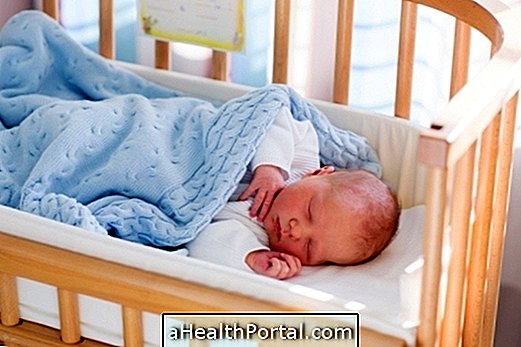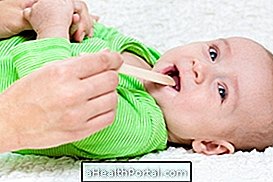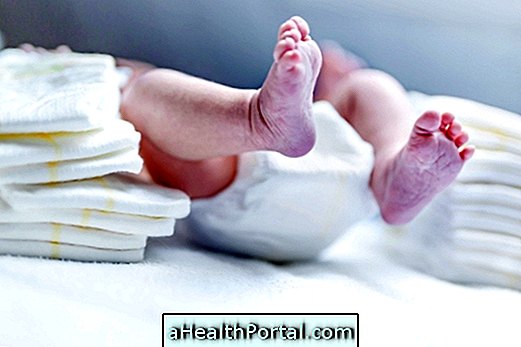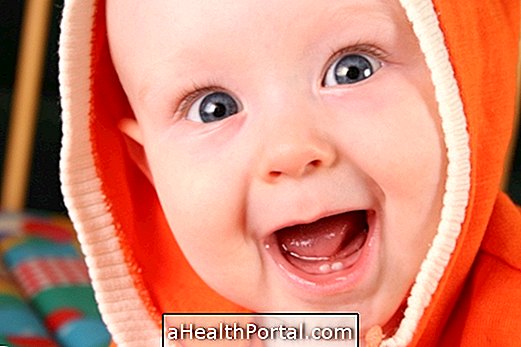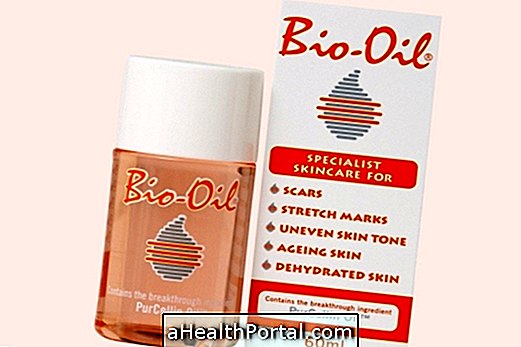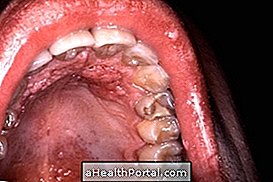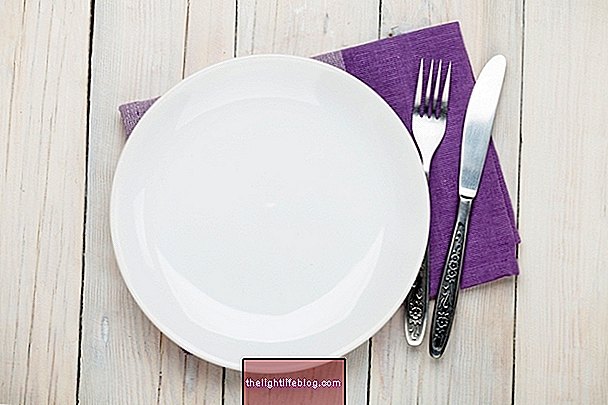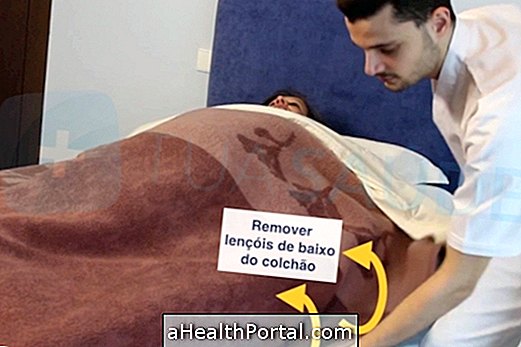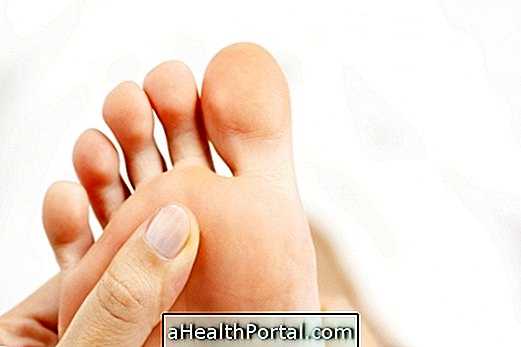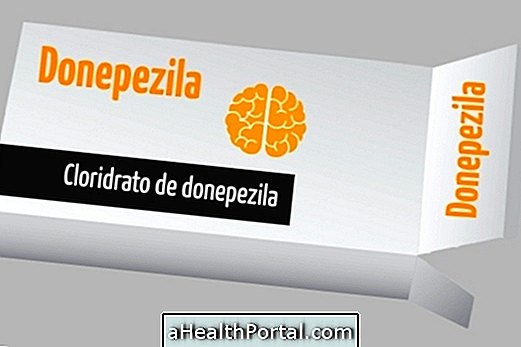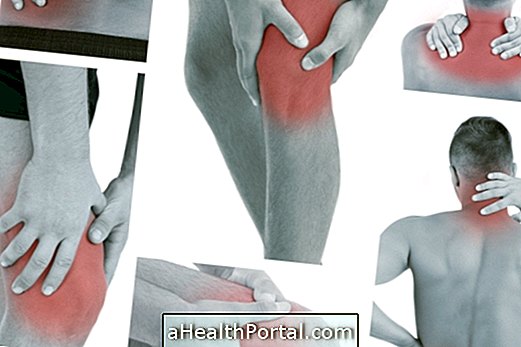Rhinitis is inflammation of the baby's nose, which has the main symptoms of stuffy nose and coryza, and it can cause itching and irritation. This way, it is very common that the baby is always carrying the hand up to the nose and is more irritated than normal.
Generally, rhinitis is caused by an allergy to various allergens that are in the breathing air, such as dust, animal hair or smoke, and that they first come in contact with the baby's body, generating exaggerated production of histamine, a substance which is responsible for causing inflammation and the onset of allergy symptoms.
In most cases, no specific type of treatment is required, and it is only recommended to maintain adequate hydration and avoid exposure to more polluted environments.
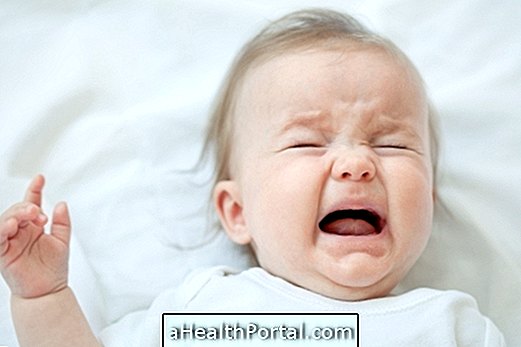
Main symptoms
The most common symptoms that indicate rhinitis in the baby include:
- Intense coryza and stuffy nose;
- Frequent sneezing;
- Keep rubbing hands on nose, eyes or ears;
- Constant cough;
- Snoring during sleep.
Due to the discomfort caused by rhinitis, it is common for the baby to appear more irritated, not having the urge to play and crying often. It is also possible that the baby is less willing to eat and wake up several times during the night.
How to confirm the diagnosis
The best way to confirm your baby's rhinitis is to see a pediatrician to assess the symptoms, however, the doctor may advise an allergist if he or she identifies that the rhinitis is being caused by a more severe and chronic allergy.
In addition to going to the pediatrician when symptoms appear, it is also very important to consult the doctor whenever there is any change in the behavior of the baby, both during the day and at night.
How is the treatment done?
Treatment for allergic rhinitis in the baby can be time-consuming, as it is necessary to find out what is causing the illness, but to alleviate the symptoms, parents can:
- Offering water several times a day, but only if it is not already exclusively breastfeeding, to fluidize the secretions, facilitate their withdrawal and prevent their accumulation in the airways;
- Avoid exposing the baby to possible allergic substances, such as animal hair, pollen, smoke;
- Wear the baby only with washed clothes, since the clothes that have already been used, especially to go out in the street, can contain several types of substances;
- Avoid drying the baby's clothing outside the house as it can pick up allergic substances;
- Do cleaning baby's nose with saline solution. Here's how to do it right;
- Make nebulisations with saline to the baby.
However, if your symptoms continue to be severe, your pediatrician may advise you to use antihistamines, such as Diphenhydramine or Hydroxyzine, which should only be used with medical advice.
In addition, some nasal sprays with anti-inflammatory or corticoid substances may also be advised for some cases.
How to prevent rhinitis from recurring
To prevent rhinitis from recurring, there are some things you can do at home, such as:
- Avoid using carpets or curtains;
- Clean the furniture and floor daily with warm water and a clean damp cloth;
- Avoid unnecessary furniture;
- Save books and magazines inside the cabinets to avoid dust accumulation, just like stuffed animals;
- No smoking inside the house and in the car;
- Change all bedding daily;
- Keep the house well ventilated;
- Do not have animals indoors;
- Avoid trips to parks and gardens in the fall and spring.
This type of care can also help prevent and calm symptoms of other respiratory problems such as asthma or sinusitis, for example.
